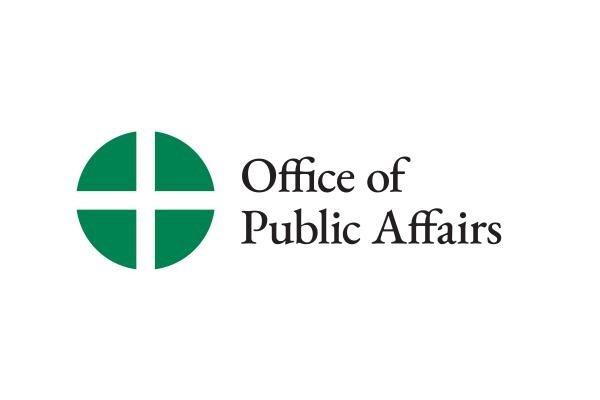Anglican-Roman Catholic Dialogue Releases Joint Statement: “Ecclesiology and Moral Discernment: Seeking a Unified Moral Witness.”
WASHINGTON—The Anglican-Roman Catholic Dialogue in the United States (ARC-USA) has concluded a six-year round of dialogue with the release of “Ecclesiology and Moral Discernment: Seeking a Unified Moral Witness,” approved at the most recent meeting February 24-25, 2014, at Virginia Theological Semin
WASHINGTON—The Anglican-Roman Catholic Dialogue in the United States (ARC-USA) has concluded a six-year round of dialogue with the release of “Ecclesiology and Moral Discernment: Seeking a Unified Moral Witness,” approved at the most recent meeting February 24-25, 2014, at Virginia Theological Seminary in Alexandria, Virginia. The meeting was chaired by Bishop John Bauerschmidt of the Episcopal Diocese of Tennessee; the Roman Catholic co-chairman, Bishop Ronald Herzog of Alexandria, Louisiana, was unable to attend for health reasons.
In 2008 the U.S. Conference of Catholic Bishops’ (USCCB) Committee on Ecumenical and Interreligious Affairs and the Most Reverend Katharine Jefferts Schori, presiding bishop of the Episcopal Church, asked the ARC-USA to address questions of ethics and the Christian life in the context of ecclesiology, in an effort to achieve greater clarity regarding areas of agreement and disagreement. They were aware that dialogue on these issues was also taking place between the Roman Catholic Church and the Anglican Communion at the international level, and also in other bilateral dialogues between churches of various traditions.
The statement reflects on the way the two churches pursue the work of teaching and learning within the Christian moral life. It examines the extent to which their respective church structures influence the way they teach and what they teach on moral questions. Inquiries and discussions about moral formation and the teaching charism of the churches guided them in addressing this topic.
With a focus on two case studies concerning migration/immigration and same sex relations, the dialogue concluded that even if the moral teachings of Anglicans and Catholics diverge on some questions, they also share important common features. The statement delves into these differences and similarities and represents progress toward a more unified Gospel witness capable of addressing contemporary concerns in ways that are useful and attractive to all Christians, as well as larger society. As Bishop Bauerschmidt said, "ARC-USA has produced some important statements in the past. This statement represents the latest landmark in our journey together as churches, and is a valuable contribution to an important topic." The full text is available online here: https://www.usccb.org/resources/arcusa-2014-statement.pdf
In the preface the co-chairmen explain the authority of the statement: “Although the members of the dialogue do not speak officially for either of our churches,” they state, “we have been asked to represent them in this dialogue, and it is in that capacity that we submit this statement to the leadership of our churches and to all their faithful for their prayerful consideration as a means of hastening progress along the path to full, visible unity.” The members of this round of ARC-USA hope that the statement will act as a catalyst for more intensive discussion in view of reaching a broader consensus on these moral issues. Bishop Madden affirmed this hope, saying that “this document opens new horizons in the ongoing discussion of ethical issues both between our churches and within them. I am confident that this new agreed statement will help to sharpen our understanding of where our true differences lie, and increase our awareness of how much we have in common.”
In addition to the two co-chairmen, the Catholic members of this round of dialogue were Father Charles Caccavale, Ph.D., professor of moral theology at Saint Joseph’s Seminary in Yonkers, New York; Sister of the Holy Cross Marianne Farina, Ph.D., associate professor of Philosophy and Theology at the Dominican School of Philosophy and Theology in Berkeley, California; Theresa Notare, Ph.D., assistant director of Natural Family Planning Program, USCCB’s Secretariat for Laity, Marriage, Family Life and Youth; Jesuit Father William O’Neill, Ph.D., associate professor of social ethics at the Jesuit School of Theology of Santa Clara University in Berkeley, California; Jesuit Father Thomas P. Rausch, Ph.D., professor of theological studies at Loyola Marymount University in Los Angeles, California; and Paulist Father Ronald G. Roberson, Ph.D., associate director, USCCB Secretariat for Ecumenical and Interreligious Affairs.
The Episcopal members were the Reverend Matthew S. C. Olver, adjunct professor of liturgy at Nashotah House Theological Seminary and in graduate studies at Marquette University in Milwaukee, Wisconsin; the Reverend Beverly F. Gibson, Ph.D., Dean of Christ Church Cathedral in Mobile, Alabama; the Reverend Victor Lee Austin, Ph.D., theologian-in-residence at Saint Thomas Church Fifth Avenue in New York; Mary Reath, former vice-chair of the Governors of the Anglican Center in Rome and author of "Rome and Canterbury: The Elusive Search for Unity"; Timothy Sedgwick, Ph.D., professor of Christian ethics at Virginia Theological Seminary in Alexandria, Virginia; Christopher Wells, Ph.D., executive director of the Living Church Foundation in Milwaukee, Wisconsin; the Reverend Margaret Rose, deputy for interreligious relations of The Episcopal Church in New York; and the Reverend Canon C. K. Robertson, Ph.D., canon to the presiding bishop, New York.
---
Keywords: USCCB, U.S. Conference of Catholic Bishops, Bishop Ronald Herzog, Bishop Denis Madden, Committee on Ecumenical and Interreligious Affairs, Bishop Katharine Jefferts Schori, Episcopal, Roman Catholic, Ecumenical, Bishop John Bauerschmidt, Anglican, dialogue, Christian, moral theology, ecclesiology, immigration, same sex
# # # # #
MEDIA CONTACT ONLY:
Norma Montenegro Flynn
O: 202-541-3202
Email

